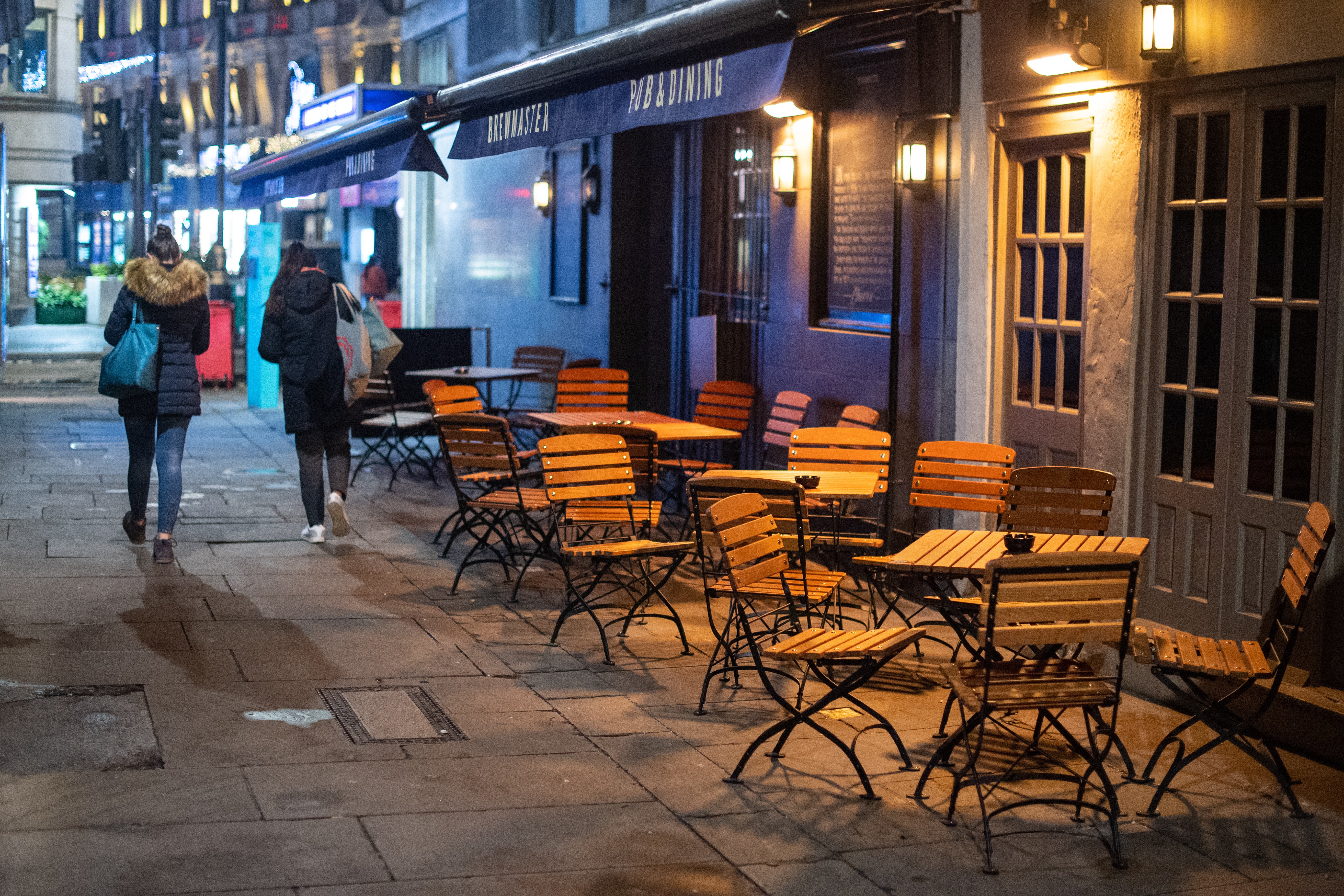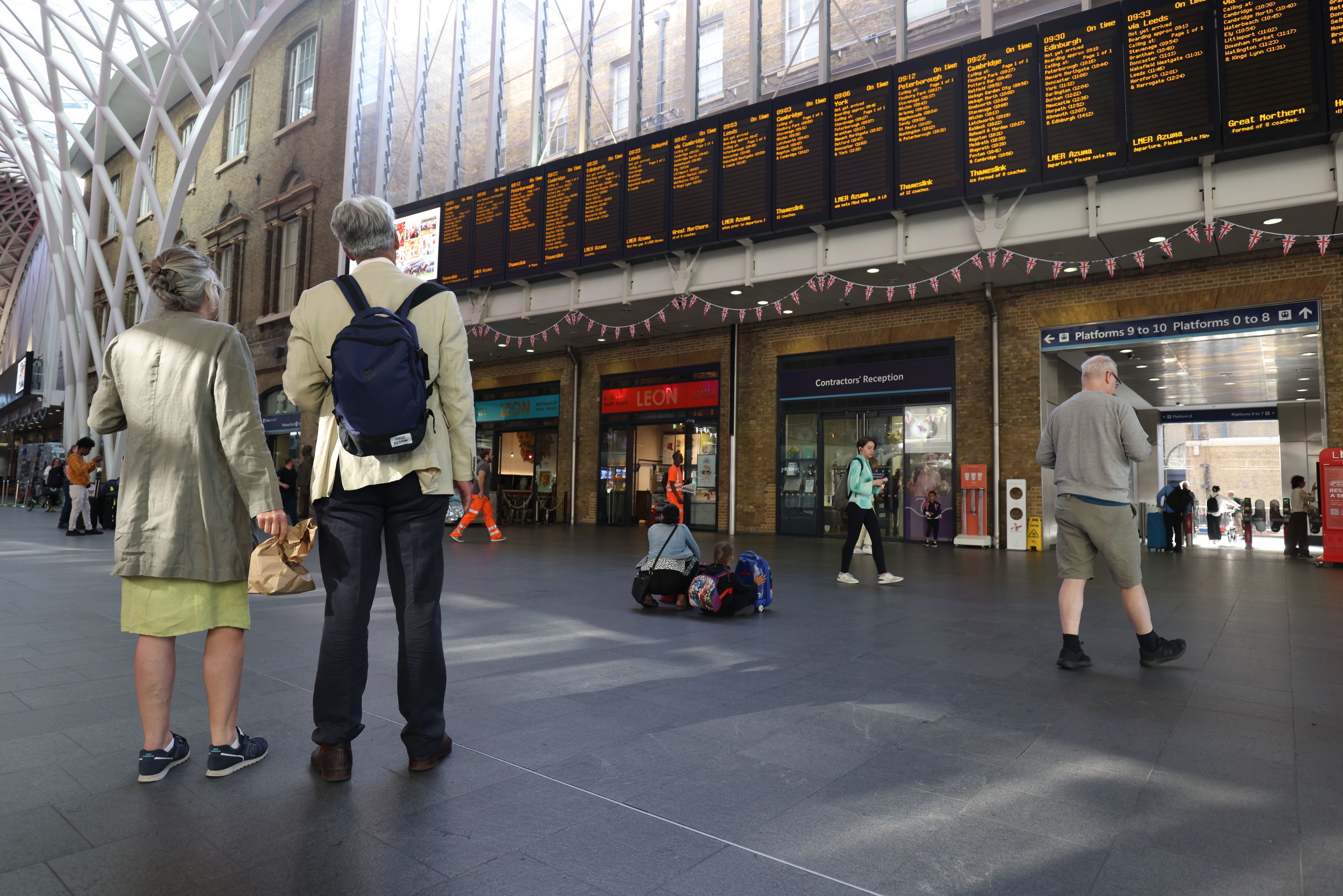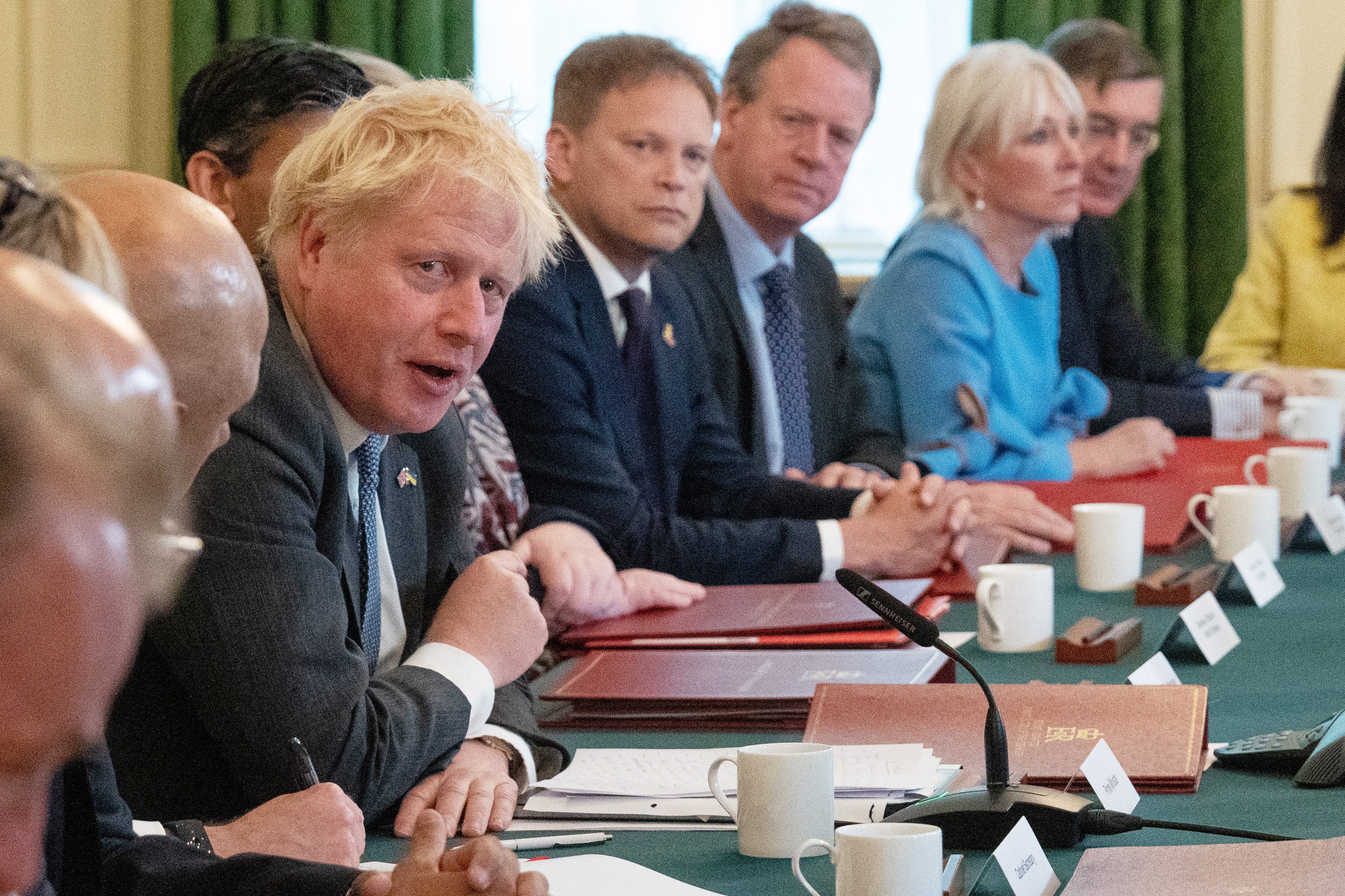Business leaders urge government to prevent ‘summer of discontent’ or see more firms go under
Firms face ‘inevitable’ wave of closures and job losses if strikes spill over into other sectors

Your support helps us to tell the story
From reproductive rights to climate change to Big Tech, The Independent is on the ground when the story is developing. Whether it's investigating the financials of Elon Musk's pro-Trump PAC or producing our latest documentary, 'The A Word', which shines a light on the American women fighting for reproductive rights, we know how important it is to parse out the facts from the messaging.
At such a critical moment in US history, we need reporters on the ground. Your donation allows us to keep sending journalists to speak to both sides of the story.
The Independent is trusted by Americans across the entire political spectrum. And unlike many other quality news outlets, we choose not to lock Americans out of our reporting and analysis with paywalls. We believe quality journalism should be available to everyone, paid for by those who can afford it.
Your support makes all the difference.Business leaders have urged the government to resolve a dispute over railway workers' pay and conditions after strikes caused travel chaos that is set to continue all week.
Pub bosses warned a “summer of discontent” would hammer the industry and inevitably result in another wave of closures, just as firms begin to recover from a nightmare two years of lockdowns and restrictions.
Small businesses and the self-employed were impacted hardest by nationwide while hospitality firms are expected to take a £1bn hit this week as Britons cancel outings.
High streets and station concourses were unusually quiet on Tuesday, with retail data firm Springboard recording an 8.5 per cent fall in visitor numbers.
Central London saw footfall plunge 27 per cent as office workers stayed home to avoid strikes across the rail network and on the Underground.
Industrial action threatens to spill over into other sectors from barristers to binmen, as staff demand higher pay to meet surging living costs. New figures show inflation rose to a fresh 40-year high in the 12 months to May.
The threat of widespread strike action adds to a host of problems hurting British businesses, including sky-high energy prices, supply chain troubles, an acute lack of workers and plummeting consumer confidence.
Andrew Goodacre, chief executive of the British Indepependent Retailers Association said the strikes had been a "disaster" for thousands of shop owners just starting to re-build their businesses after two years of intermittent lockdowns.

"Retail businesses near to travel hubs and in city centres will be impacted all week by a rail strike planned to bring about maximum disruption," he told The Independent.
Retailers are trying to adjust to a new reality of fewer commuters after the pandemic and there is a “real fear” that the strike will damage business in the longer term as it will reinforce the work-from home-trend, Mr Goodacre said.
"As is often the case with mass strikes, very little thought is given to the unintended consequences on people – in this case self employed people with no guaranteed income at all and who are already facing difficult times.”
Strikes are already having "severe impacts" on the finances of workers who cannot work from home, said Andy Chamberlain, director of policy at IPSE, a lobby group for self-employed workers.
Many self-employed people have struggled through the pandemic after seeing work dry up and falling through the gaps in government support.
"Unlike employees, self-employed workers aren’t paid if they can’t work, and therefore thousands of these workers will potentially lose out on a week’s worth of income,” said Chamberlain.
Pubs, bars and restaurants reported a big drop off in customers on Tuesday, with industry leaders warning that some venues saw as little as a tenth of usual trade, with disruption continuing all week.
Adam Mayers, managing director of Hydes Brewery, said city centre venues had seen sales dip and warned that a summer of strikes across different sectors would hammer the country’s pubs.
However, Hydes pubs in suburban areas noted improved trade this week as people took the opportunity to work from home, accelerating a pre-existing trend, Mr Myers said.

He warned that a summer of strikes would "deliver another blow to the already beleaguered hospitality sector".
"It will lead to higher costs and more pressure on consumer spending. There will be very few winners and more pub closures."
Clive Watson, founder of City Pub Group, said it is “barely worth opening” some sites near train stations this week.
Mr Watson, executive chairman of the 42-strong group, said that city centre locations have been hit hard by cancellations.
“We have seen events cancelled in droves and really weak bookings in a lot of places,” he said.
“In London it is obviously bad but we’ve also seen it in Bristol, Norwich, Exeter, Reading. In general, a large proportion of bookings are being cancelled, without plans for them to be rearranged too.
“It’s early days but I think we are expecting trade to be 20 per cent to 25 per cent down this week.”
Strikes had turned "operational headaches into a fully blown migraine", for hospitality firms, said Susannah Streeter, senior analyst at Hargreaves Lansdown.
"As the transport network seizes up, bookings are expected to plummet as the lucrative lunchtime crowd stay at home, and night-time revellers cancel reservations whilst fearful they won’t be able to get home at the end of the night," Ms Streeter said.
Shares in pub chain Mitchells and Butlers fell by 1.4 per cent on Tuesday amid worries about a decline in consumer spending, while Wagamama owner the Restaurant Group dropped 0.7 per cent.
The sector is already suffering from a staff shortage, with 35 per cent firms saying it is a problem.

Travel chaos continued on Wednesday morning with just 60 per cent of rail services running as talks were set to resume after 40,000 members of the Rail, Maritime and Transport union (RMT) on Network Rail and 13 train operators staged the first of three walkouts.
The union wants a guarantee that there will be no compulsory redundancies as rail companies seek to cut costs in response to a fall in passenger numbers. It is also seeking a bigger pay rise than the 3 per cent currently on offer, which is below inflation at 9 per cent.
Federation of Small Businesses national chair Martin McTague said strikes had made life "incredibly stressful" for employees and business owners trying to get to and from work.
"A fully functioning transport network is vital to small businesses' survival. We urge all parties to sort out the issues behind the strike.”
Union leaders, railway bosses and government ministers appear to have made little progress on talks over the dispute.
RMT chief Mick Lynch has said his priority was avoiding any compulsory redundancies and securing a better pay deal. The RMT argues that rail companies have proposed rates that are "massively under" the relevant rates of inflation, coming on top of pay freezes in recent years.
Rail operators are also looking to cut thousands of jobs which the union says are a result of £4bn slashed off Network Rail's funding by the government.
Other disputes cebtre around safety issues, including the planned closure of ticket offices and a 50 per cent reduction in inspections of rail infrastructure.
Unions accused Boris Johnson of pursuing a “race to the bottom” on pay, as the prime minister set the scene for months of confrontation with striking workers. The prime minister has called for workers to show restraint when asking for pay rises.
Join our commenting forum
Join thought-provoking conversations, follow other Independent readers and see their replies
Comments